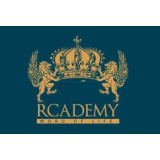This informal CPD article, ‘The Importance of Soft Skills in Today's Workplace‘, was provided by Rhema Training and Consultancy, who offer training and assistance to cover all aspects of professional careers. Experts want to provide training and impart knowledge, and Rhema channel their intentions to reality.
In today's dynamic and competitive workplace, technical skills alone are insufficient to thrive. Employers increasingly recognize the importance of soft skills – those interpersonal, communication, and emotional intelligence abilities that enable individuals to interact effectively with others and navigate complex situations. In this article, we delve into the significance of soft skills in contemporary work environments and why they are essential for professional success.
What are soft skills?
Soft skills encompass a broad range of attributes that go beyond technical proficiency. Communication, teamwork, adaptability, problem-solving, and leadership are among the key soft skills that contribute to individual and organizational success. These skills are fundamental for building strong relationships with colleagues, clients, and stakeholders, fostering collaboration and innovation, and enhancing overall productivity and performance in the workplace.
Effective communication lies at the heart of soft skills and is essential for success in any role or industry. The ability to express ideas clearly, listen actively to others, and convey information in a manner that is easily understood is crucial for effective collaboration, conflict resolution, and building rapport with colleagues and clients. Strong communication skills facilitate the exchange of ideas, feedback, and information, leading to improved teamwork and organizational outcomes.
Teamwork is another critical soft skill that employers highly value. The ability to work collaboratively with others, contribute positively to group dynamics, and support team goals is essential for achieving collective objectives and delivering successful outcomes on projects and initiatives. Effective teamwork fosters creativity, innovation, and mutual support, creating a positive work environment conducive to success.
Adaptability and flexibility are also key soft skills in today's rapidly changing work environment. With technological advancements, shifting market trends, and evolving customer demands, employees must be able to adapt to new situations, navigate uncertainty, and embrace change. Those who can quickly adjust their approach, learn new skills, and remain resilient in the face of challenges are better positioned to thrive in dynamic and unpredictable environments.
Problem-solving and critical thinking skills are essential for identifying and addressing challenges, finding innovative solutions to complex problems, and making informed decisions. Individuals who can approach problems analytically, think creatively, and apply logical reasoning are valuable assets to their organizations. Effective problem-solving skills enable employees to overcome obstacles, seize opportunities, and drive continuous improvement in the workplace.
Leadership skills, whether exercised in formal or informal roles, are essential for inspiring, motivating, and influencing others. Effective leaders possess qualities such as vision, empathy, integrity, and resilience, and they empower and support their team members to reach their full potential. Strong leadership fosters trust, collaboration, and accountability, driving organizational success and employee engagement.
In summary, soft skills are integral to success in today's workplace, complementing technical expertise and knowledge. Employers increasingly prioritize the development of soft skills in their workforce, recognizing the significant impact they have on organizational performance and employee satisfaction. By investing in the cultivation of soft skills, individuals can enhance their employability, advance their careers, and contribute to a positive and productive work environment.
We hope this article was helpful. For more information from Rhema Training and Consultancy, please visit their CPD Member Directory page. Alternatively, you can go to the CPD Industry Hubs for more articles, courses and events relevant to your Continuing Professional Development requirements.













